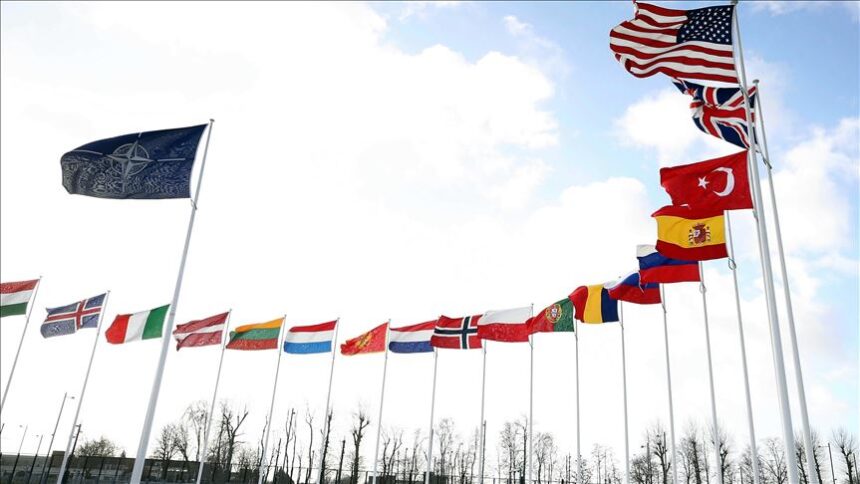By Zeynep Gurcanli
The word which best summarizes Turkey’s foreign policy in recent years is ‘unpredictable’.
Since Turkey shifted to the Presidential system, ‘westernophobia’ has increased, military power has surpassed diplomacy, particularly during election cycles, an approach which clearly premises foreign policy on a domestic agenda.
This policy bore returns during Trump’s term in U.S.; the U.S. president’s wrecking ball approach toward the EU and the western alliance benefitted regional countries like Turkey. Turkey’s cross-border operations in Syria, gradual expansion of its fight against the PKK terrorist organization and military intervention in Libya were all possible because of Trump. However, the presidential transition in U.S. in 2021 and a worsening economic crisis in Turkey have taken these military initiatives to their limit.
Divisiveness in the western bloc and the ease with which regional actors could navigate in their immediate environments ended with Biden’s swearing in. The latest policies pursued by the AK Party have given us a glimpse of how it is positioning itself in relation to this ‘integrated West’. The launch of exploratory talks with Greece aon the insistence of Turkey, President Erdogan and AK Party government members’ constant statements about economic and judicial reforms and Foreign Minister Cavusoglu’s talks with Brussels to ‘end the tensions’ reflect this new position.
THE EASTERN MEDITERRANEAN IS KEY
However, it’s clear that these efforts in Ankara, which has had some leverage against the West, will come at a price. What this price will be is starting to come into focus after last week’s statements from Greece, Brussels, Washington and Israel.
The Greek Prime Minister stated that Eastern Mediterranean issues will be discussed at the 61st round of exploratory talks to be held with Turkey. However, the idea of Greece having no borders on the Eastern Mediterranean has not gained any traction to date, based on Turkey’s position. This issue hasn’t been included in any rounds of 60 exploratory talks so far. However, the fact that Ankara has been silent on the issue sor far raises the possibility that the Eastern Mediterranean could be included in the 61st round upon Greece’s request.
Greece’s Foreign Minister stated that they plan to increase territorial waters to 12 miles of the southern coast of Crete. It is just a beginning; if there is no reaction against this, Athens will insist on its 12-mile territorial waters to the east of Crete. Turkey has no claim there. However, the east of Crete directly overlaps with the Exclusive Economic Zone borders declared by Turkey. The ball will be in the court of other Aegean Islands after Crete. The goal is to turn Turkey into a ‘landlocked country’ not only on the Aegean, but also on the Mediterranean.
The trouble is that Ankara hasn’t replied to the foreign minister’s statement. The
Ministry of Foreign Affairs made a statement condemning it, however it only included reactions against his statement about minorities in Turkey without broaching the subject of Crete.
A statement on the Eastern Mediterranean came from Biden’s new Secretary of State, Antony Blinken, in Washington. Answering Democrat Senator Bob Menendez’s question, he emphasized that he will work to “deepen U.S- Greece-Greek Cypriots relations” and that “the U.S.-Greece security relations are important for their interests in the Eastern Mediterranean”. Blinken also said that the Biden administration “will support” the gas partnership in the region.
Lastly,
Israel’s Minister of Energy, Yuval Steinitz, stated that Turkey can join the East Mediterranean Gas Forum if it wants. This statement was interpreted as a ‘softening’ of the Israeli stance by the pro-government press in Turkey. The possibility of Turkey being included, however, is unlikely. One of founders of the Gas Forum is Cyprus. If Turkey wants to join this forum, Turkey will come up against the condition of ‘officially recognizing’ it. In this vein, the Israeli Minister said that he personally hopes Turkey will change its position as regional spoiler and engage in regional cooperation with its neighbors. One of the “neighbors” in the Forum is Egypt, which has strained relations with Turkey, and the other is the Greek Cypriots.
With Biden taking over the White House, the first united area of the West alliance seems to be the Eastern Mediterranean.









